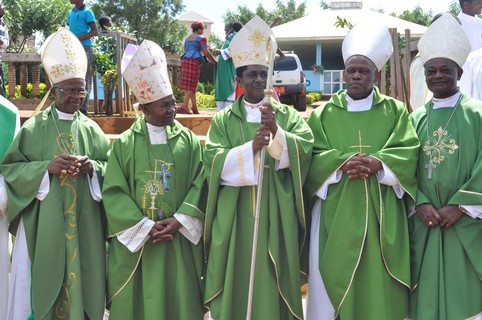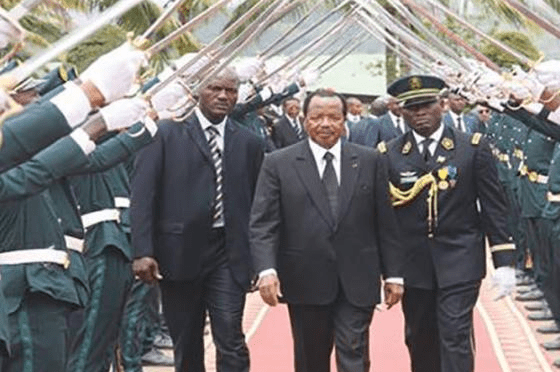The following is a release from the Ministry of Higher Education:
“The Minister of Higher Education, Chancellor of Academic Orders, presided an Expert Group Meeting on the harmonization of University Curricula in classical Faculties of State Universities on the 30th of May 2016 at the National Advanced School of Engineering of the University of Yaoundé 1.
In attendance, besides the Rectors of the Universities of Yaoundé 1 and II, were Heads of Departments of Faculties of Law and Political Sciences, Economic and Management Sciences and Arts, Letters and Social Sciences, of all the eight State Universities.
In his opening address, the Minister reminded participants of the terms of Article 1 of Decree N° 93/027 of 19th January 1993 relative to the general Rules and Regulations applicable to Universities, which stipulates that: Universities are public institutions with a scientific and cultural character, a moral personality and with an academic, administrative and financial autonomy.
He moreover alluded to the Rules and Regulations of Decree N°2012/433 of 1stOctober 2012, organizing the Ministry of Higher Education which, in its Article 29, authorizes the Minister of Higher Education to ensure the harmonization of University Curricula. He thus concluded that the Expert Group Meetings have as task to ensure the coherence of the entire system while at the same time respecting the specificities inherent to each University within the framework of their academic autonomy.
The Minister availed himself of the opportunity to insist on the fact that harmonization does not mean uniformization or standardization of University programmes. Rather, it is about the putting in place of common bases for the comparability of University curricula and Diplomas and facilitate the academic mobility of students and teachers.
The session continued with a presentation on the contextual framework by the Director of Higher Education Development and opened up frank, constructive and contradictory exchanges centered around major difficulties in implementing the BMP system. These are:
1. Structuring Programmes;
2. Determining number of Course Units per semester;
3. Determining the number of credits per Course Unit;
4. Determining the value of a credit;
5. Codification of Course Units;
6. Semestrialization of Courses;
7. Grading Systems;
8. Conditions of admission into higher levels;
9. Professionalization of teaching;
10. Credit transferability between Universities.
The general consensus at the end of these discussions constituted a framework on which workshops based their deliberations to elaborate referential documents for drawing up curricula, and also became the basis which will in future permit student mobility and credit transferability from one University to another.
At the end of the session, the following resolutions were arrived at:
– Each University will write out its curricula using the referential frame built up in the workshops and will have the curricula validated by the various University Senates;
– The validated curricula will be transmitted to the Ministry of Higher Education for approval and eventual accreditation by the competent accrediting bodies;
– Professional Fields of Study could start from the first year in classical Faculties alongside the classical Fields of Study;
– The specificities of the Anglophone subsystem of education will have to be respected as prescribed by the law. The Universities of Buea and Bamenda will, therefore, harmonize their curricula among themselves without necessarily conforming to the francophone model.
In his closing address, the Minister of Higher Education called the attention of participants to the fact that henceforth, following from these Expert Group Meetings, students can move from one University to another without constraints.
He finally congratulated the participants for their rigour and sense of responsibility which enabled them to be able to find the common ground necessary for a consensus to be arrived at.
The Meeting rounded off in an atmosphere of serenity, mutual confidence, and conviviality.”
Done in Yaoundé on the 9th of June 2016.





2 comments
English speaking Cameroonians are too blindly nostalgic for what they call Anglo-saxon system of education as if that’s the best system of education in the world and even if it is, that may not be the best for Cameroon. How about we Cameroonians creating a system of education that is best for us?
I think that it is but normal for every well thinking Cameroonian to take cognisance of the bi-cultural nature of this geo-political divide called Cameroon,and respect what has been enshrined in the Constitution of this wonderful and beautiful country.
Thank God the two Anglophone universities have been left alone to continue to run their programs.However,they can do their harmonisation as they are one of sound.